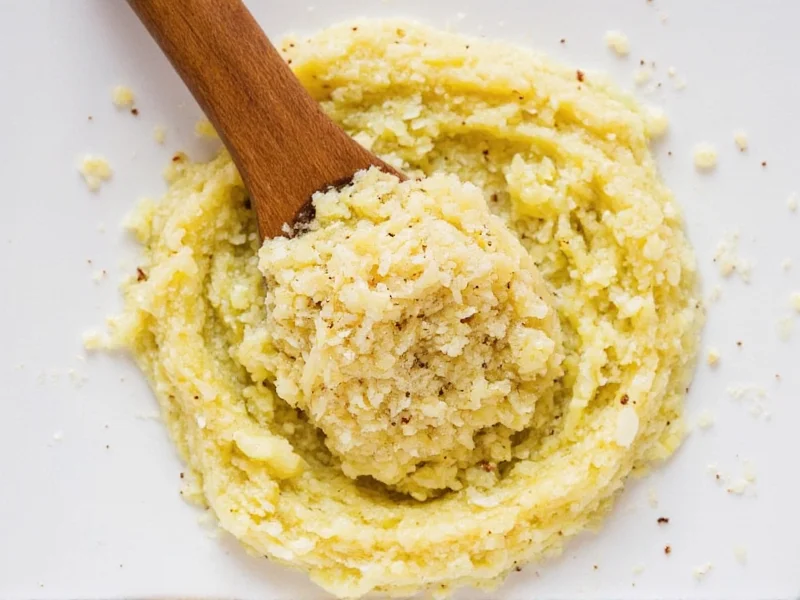Understanding Onion Butter Seasoning Composition
Onion butter seasoning typically contains three core components that create its distinctive flavor profile. The primary ingredient is dehydrated onion in flake or powder form, which provides the foundational onion taste without moisture that could spoil the blend. High-quality commercial blends use real onion extracts rather than artificial flavors.
The butter element comes from either natural butter flavoring derived from dairy components or non-dairy alternatives for vegan versions. This isn't actual butter (which would spoil), but carefully formulated compounds that mimic butter's rich, nutty characteristics. Salt serves as both flavor enhancer and preservative, while additional ingredients like garlic powder, parsley, black pepper, and natural flavors round out the profile.
When evaluating homemade onion butter seasoning versus store-bought options, consider that commercial versions often contain anti-caking agents to prevent clumping and preservatives for shelf stability. The best products maintain a balanced ratio where neither onion nor butter flavor dominates excessively.
Creating Your Own Homemade Onion Butter Seasoning
Making easy homemade onion butter seasoning recipe gives you complete control over ingredients and flavor intensity. This basic version yields approximately ½ cup of seasoning:
| Ingredient | Measurement | Function |
|---|---|---|
| Dehydrated onion flakes | ¼ cup | Primary onion flavor base |
| Garlic powder | 1 tbsp | Flavor enhancer |
| Dried parsley | 1 tbsp | Color and freshness |
| Salt | 1½ tsp | Flavor enhancer and preservative |
| Butter flavor powder | 1 tbsp | Buttery notes without dairy |
| Black pepper | ½ tsp | Complexity and warmth |
To prepare, combine all ingredients in a small bowl and whisk thoroughly until uniform in color. For onion butter seasoning without artificial ingredients, substitute the butter flavor powder with 1 teaspoon of nutritional yeast plus ½ teaspoon of smoked paprika, which creates a surprisingly buttery profile through natural components.
Store your homemade blend in an airtight container away from light and moisture. Properly stored, it maintains peak flavor for 3-4 months. For longer shelf life onion butter seasoning storage, keep it in the refrigerator, though this may cause slight clumping that resolves at room temperature.
Optimal Applications for Onion Butter Seasoning
Understanding how to use onion butter seasoning effectively transforms ordinary dishes into restaurant-quality meals. Unlike fresh onions that require caramelization to develop sweetness, this seasoning delivers immediate flavor impact at any cooking stage.
For proteins, apply generously to steak, chicken, or pork before searing. The seasoning creates an exceptional crust while infusing flavor throughout. When preparing onion butter seasoning for grilled steak, mix 1 tablespoon of seasoning with 2 tablespoons of olive oil to create a paste that adheres well to meat surfaces.
Vegetables particularly benefit from this seasoning. Toss roasted potatoes, carrots, or green beans with melted butter and 1-2 teaspoons of seasoning before cooking. For steamed vegetables, sprinkle the seasoning during the last 5 minutes of cooking to preserve its volatile flavor compounds.
One of the most popular applications is onion butter seasoning for mashed potatoes. Add 1-2 teaspoons per pound of potatoes along with your usual butter and milk for an instant flavor upgrade. The seasoning distributes more evenly than fresh onions and won't create unpleasant texture pockets.
Creative Recipe Ideas Using Onion Butter Seasoning
Expand beyond basic applications with these chef-inspired uses that showcase versatile onion butter seasoning recipes:
Garlic Bread Upgrade
Mix 2 tablespoons of softened butter with 1 teaspoon of onion butter seasoning and ½ teaspoon of garlic powder. Spread on baguette slices and broil until golden. The seasoning eliminates the need for fresh onions while delivering that beloved savory depth.
One-Pan Chicken Dinner
Season 4 chicken thighs with salt, pepper, and 1½ teaspoons of onion butter seasoning. Sear until golden, then add 1½ cups of chicken broth, 1½ cups of uncooked rice, and 2 tablespoons of butter. Simmer covered for 25 minutes. The seasoning infuses the entire dish with consistent flavor as it cooks.
Flavored Compound Butter
Combine ½ cup softened butter with 1 tablespoon of onion butter seasoning, 1 minced shallot, and 2 tablespoons of chopped chives. Roll into a log using parchment paper, then chill. Slice coins to melt over grilled meats or vegetables for restaurant-style onion butter finish.
Troubleshooting Common Issues
Even with such a simple product, certain challenges can arise when working with onion butter seasoning in cooking applications. Here's how to address them:
Overpowering onion flavor: If your dish tastes too onion-forward, balance with acid. A squeeze of lemon juice or ½ teaspoon of vinegar counteracts excessive onion notes while enhancing the butter elements. For future reference, reduce the seasoning quantity by 25% in your next attempt.
Uneven distribution: Clumping can occur when adding dry seasoning directly to wet ingredients. Prevent this by mixing the seasoning with 1 tablespoon of oil or melted butter before incorporating into your dish. This technique works especially well for onion butter seasoning in sauces and gravies.
Loss of flavor during cooking: High heat degrades delicate flavor compounds. For maximum impact, add half your seasoning early in the cooking process for base flavor, then finish with remaining seasoning after cooking to preserve volatile aromatics.
When substituting for fresh ingredients, remember that onion butter seasoning equivalent to fresh onions follows a general ratio: 1 teaspoon of seasoning replaces ¼ cup of finely chopped fresh onions plus 1 tablespoon of butter. Adjust based on your specific blend's intensity.











 浙公网安备
33010002000092号
浙公网安备
33010002000092号 浙B2-20120091-4
浙B2-20120091-4